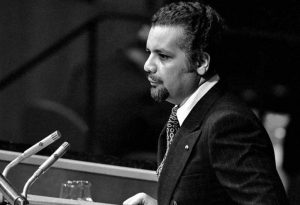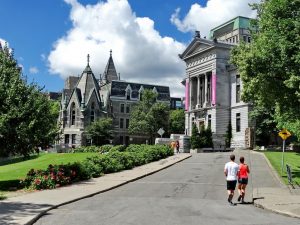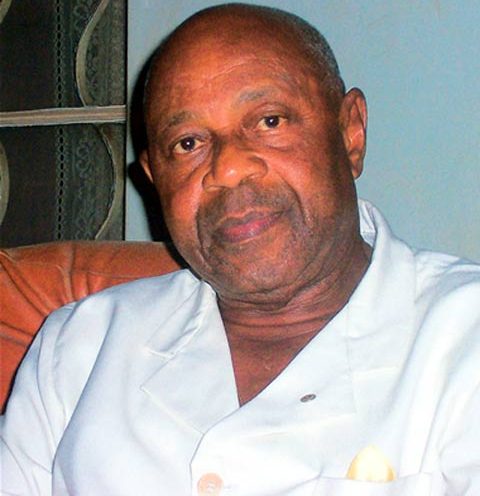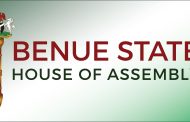Nigeria’s Prof David West is dead. The news of that has already spread across the country. People live longer than the age of 83 nowadays but even then, 83 is still advanced in the comparative African figures of lifespan. If his age at death is not a truamatising issue, what may be that worrisome thing regarding his death?

Sheikh Yamani in a late 1970s picture
The most significant thing about the late Professor is that he was a global star. David West shared global limelight with Sheikh Zaki Yamanai at a time Saudi Arabia was the core of American energy geopolitics and the Saudi Oil Minister was the feared ‘darling’ of the American dominated global media. Having been part of the intellectual crew that masterminded the 1973 nationalist Middle Eastern oil calculus, he could not but be a feared ‘darling’ because he was powerful in himself. So, David West couldn’t have done that by grumbling or attacking Sheikh Yamanai but by cogently articulating his points in such a manner that the media and other OPEC colleagues could see his point. The two became friends.
It is true that David West comes from a zone of qualitative people – the likes of Poet John Pepper Clark and writers such as Elechi Amadi, social scientists such as Eskor Toyo and Claude Ake, one of the few Africans to contribute a theory. Clement Isong was a CBN Chief and so on and so forth. David West added a geopolitical power script to that list. When you read his series of interviews in The Sunday Magazine, (TSM) and his details about how he handled OPEC politics, then you wonder how the Oil Minister of an African country could do that.
There might be a number of other reasons but his profile reveals what must be a key reason: he attended elite universities that prepared him for creativity in turf wars.
Without mystifying any schools or creating the impression that knowledge gained from university is the only knowledge that works, it must, however, be said that elite universities prepare its students for primacy in life. Attending them could confer on those who did certain abilities that enhances primacy. It is not possible to take just anyone as Nigeria’s Oil Minister in those days and he would exercise tremendous influence or contest the Saudi Oil Minister’s media visibility. Not when Sheikh Yamani had spent two decades or thereabout in that position by the time David West arrived in the domain of oil in global power politics. It is not like now when Oil is losing the edge by the day as a victim of the many contradictions around it and the resultant intensification of experimentation with alternatives.

An angle on McGill University
In the case of David West, his profile shows that he attended Yale University in the US and McGill University in Canada. When Dr. Patrick Wilmot was deported from Nigeria on the ground that he was spying for the South African/Apartheid intelligence, he laughed his accusers to scorn. If he wanted to work for even the CIA, he said, it would have been for the asking since it is elite universities such as Yale that the CIA privileges in recruiting field officers. Yale is a global top 20 university today and produces solid students. That is where David West obtained a Masters Degree. So, Sheikh Yamani went to Harvard Law School, David West went to Yale.
As for McGill, it is probably enough to know that is where Robert Cox had his education and it must be part of the explanation for him writing his 1981 academic essay which (1) sits pretty a lot with classical Marxism, critical theory and comfortably with interpretivists; (2) has gone nearly without criticism since 1981 when it was published and (3) remains more influential than most other papers. McGill is where David West obtained his PhD. McGill is tough.
It is not surprising David West showed up qualitatively and fitted in as a Commissioner for Education who problematised the office rather than quantitative or problem-solving appointees who just go and warm the chair, merely signing papers in perfunctory manners. And the world took note of him when he became Oil Minister of a ‘Third World’ African country at a time the Cold War was the defining ground for inference in everything.
What’s the point here then? It is simply that it is strategic for a nation to prioritise elite universities as a power resource. Nigeria was doing well in this regard before it made a U-turn. That is why the University of Ibadan, for example, could produce that cohort in Literature, one of who won the Nobel Prize for Literature. The greatness that Oil has brought to Nigeria was further enhanced by the greatness the prize has also brought to Nigeria’s image. So, we have Nigeria as its image as constructed by oil and Nigeria as its image as constructed by the discourses posted by the men of letters.
What must be worrisome about the death of the David Wests of this country is that elite universities that can produce their replacements are not there. It is true more people go out today to study in all manner of universities. Nobody would raise an eyebrow against that. It is outward mobilisation of national resources. But where are the elite universities in Nigeria that other nationals could come and fetch or deposit knowledge?
Can UI of today produce another Soyinka, another Achebe and all the other big names that constituted that cohort that constructed the ‘Literary’ in a post-colonial Nigeria? Or is ABU, Zaria of today attracting the sort of intellectual figures that willingly concentrated there and were part of Nigeria’s global image up to the late 1980s?
Adieu David West!




























